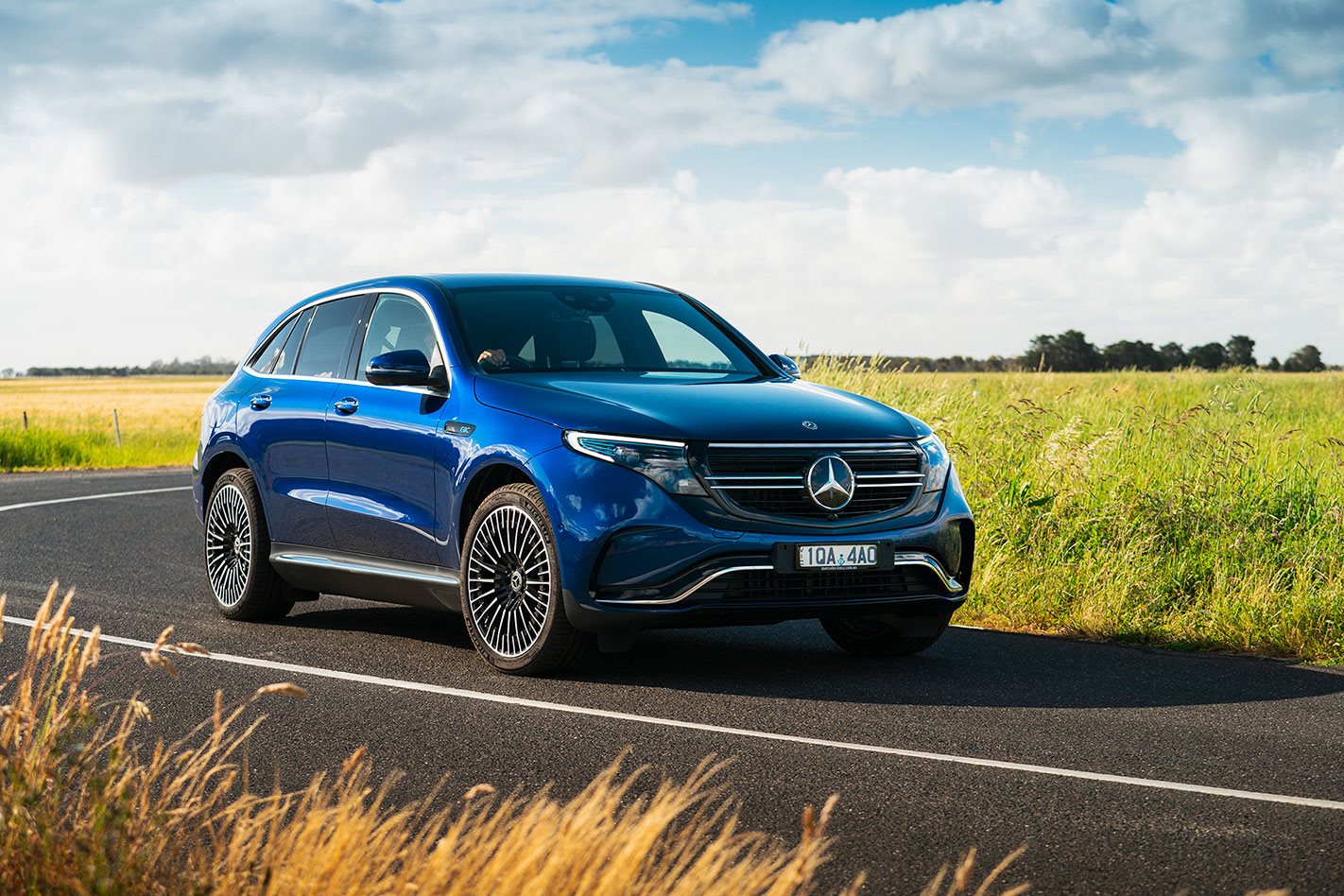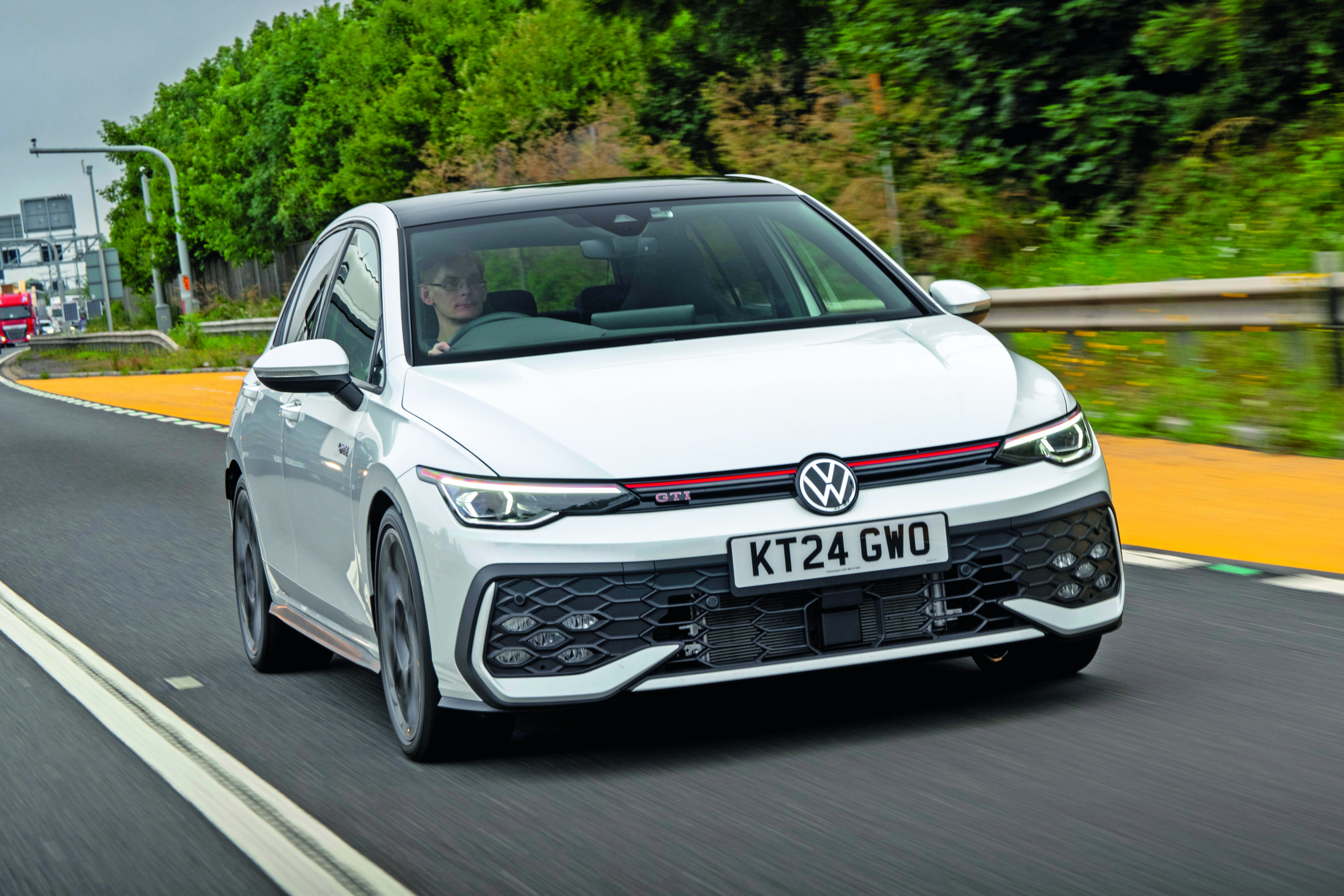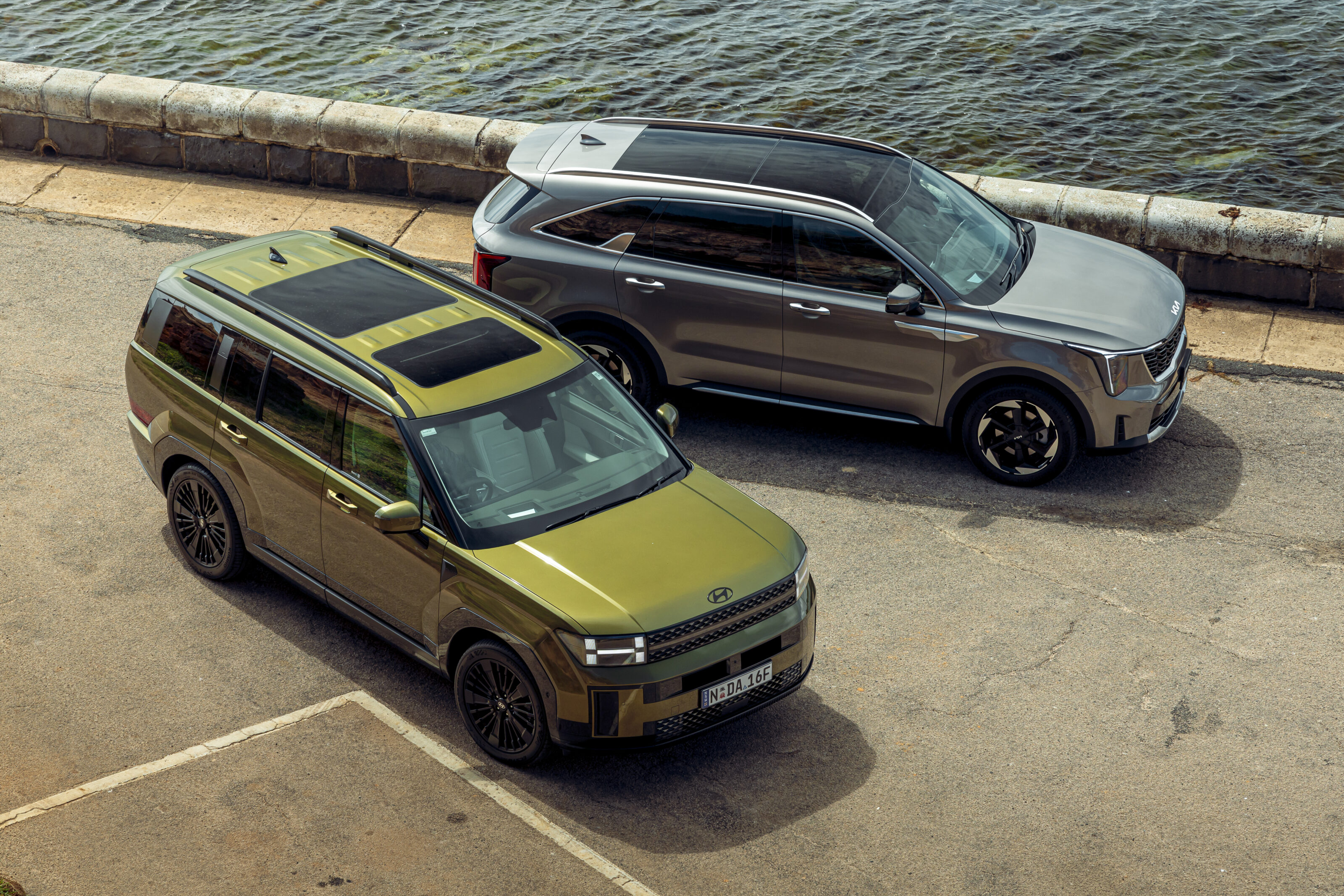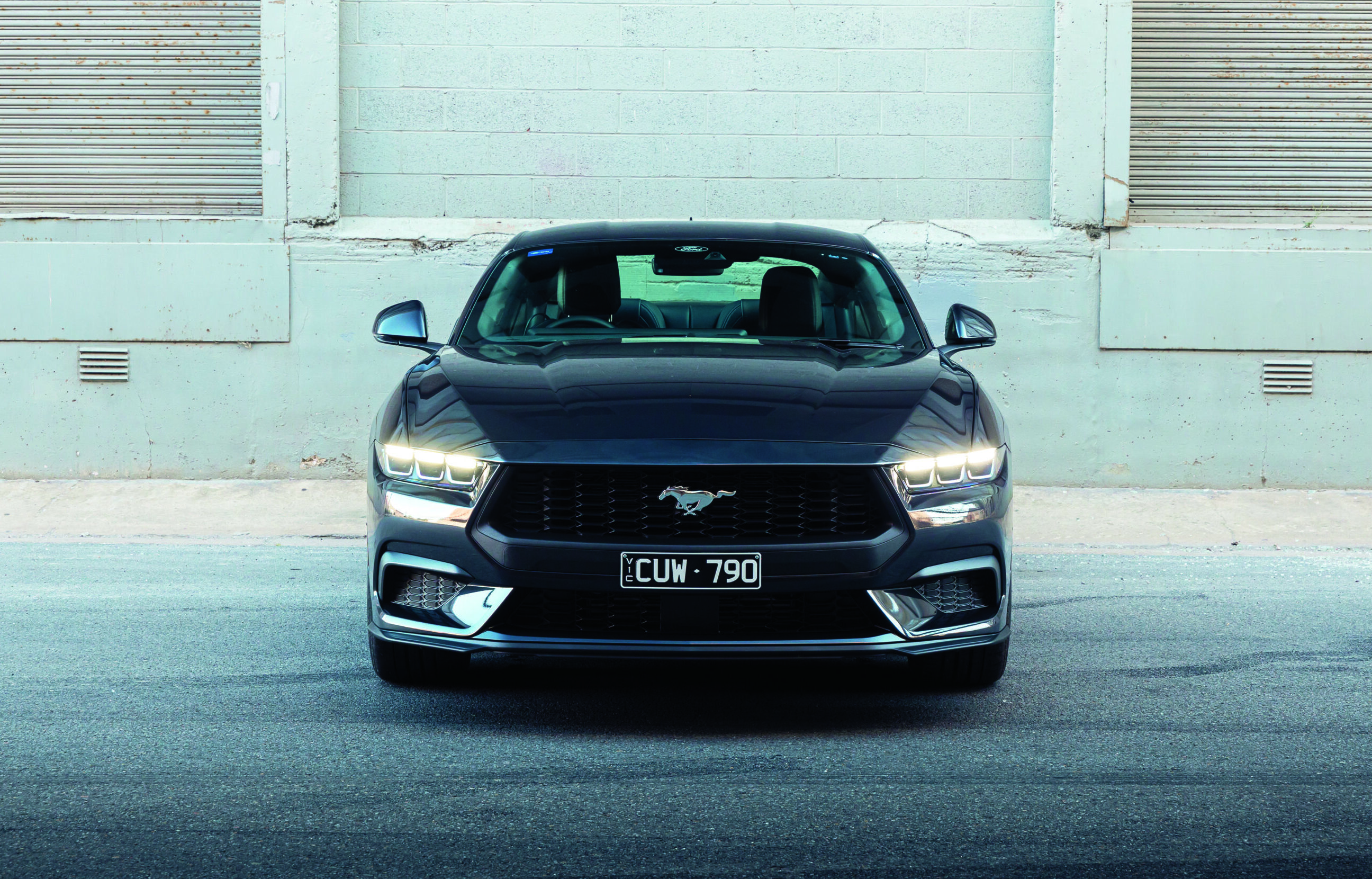Things we like
- Instant acceleration
- Cabin quietness;
- Plush ride
- Free recharging
Not so much
- Less dynamic than Jaguar I-Pace
- Packaging not EV-optimised
The Wheels Verdict: The Mercedes-Benz EQC 400 is not perfect. It doesn’t mark a revolution in terms of cabin or luggage space relative to its exterior dimensions, and its weight can make it feel a little ponderous if its driver attempts to push on in tight terrain. And of course it carries a price tag commensurate with an SUV this richly equipped wearing the three-pointed star.
But beyond that, we’re struggling to find flaws. It cossets occupants in what feels like next-level isolation and comfort, makes swift cross-country progress feel effortless, and provides an acceptable range from its battery. Crucially, it makes the transition from internal combustion to EV feel like a genuine advance, rather than a compromise we’ll all have to bear. It’s Mercedes’ best-ever SUV, and probably the most significant car of 2019.
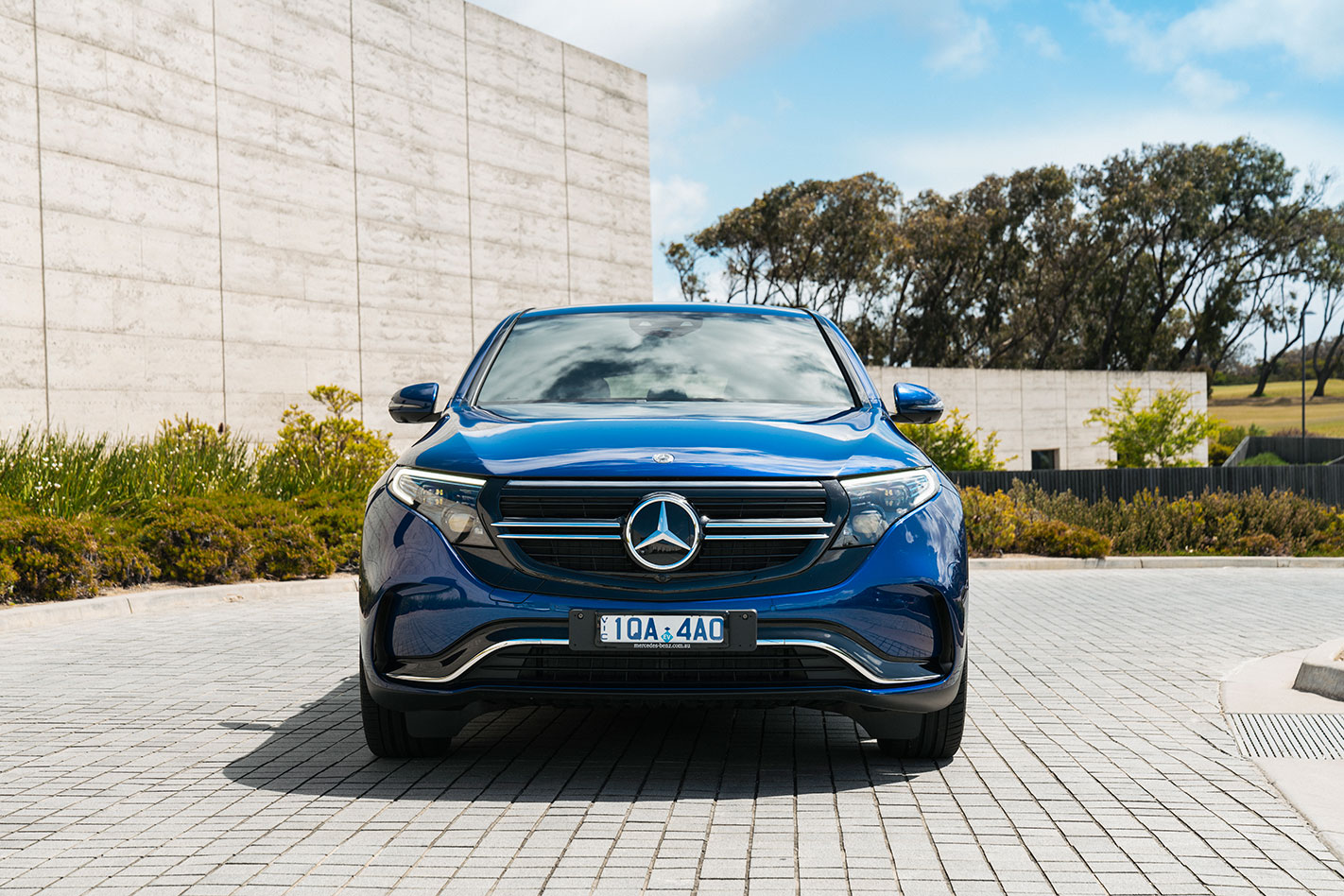
WHAT IS THEMERCEDES-BENZ EQC 400?
The first mainstream EV from Mercedes-Benz. It’s a mid-size SUV that uses the GLC to provide the basis for its dual-motor (front and rear) layout fed by a floor-mounted lithium-ion battery pack.
WHY WE’RE TESTING IT
We first drove the EQC at its international launch in Norway and were impressed by just about every facet of its performance and liveability.
This is our first chance to drive it on Aussie roads, using local recharging infrastructure and knowing its local price and level of specification.
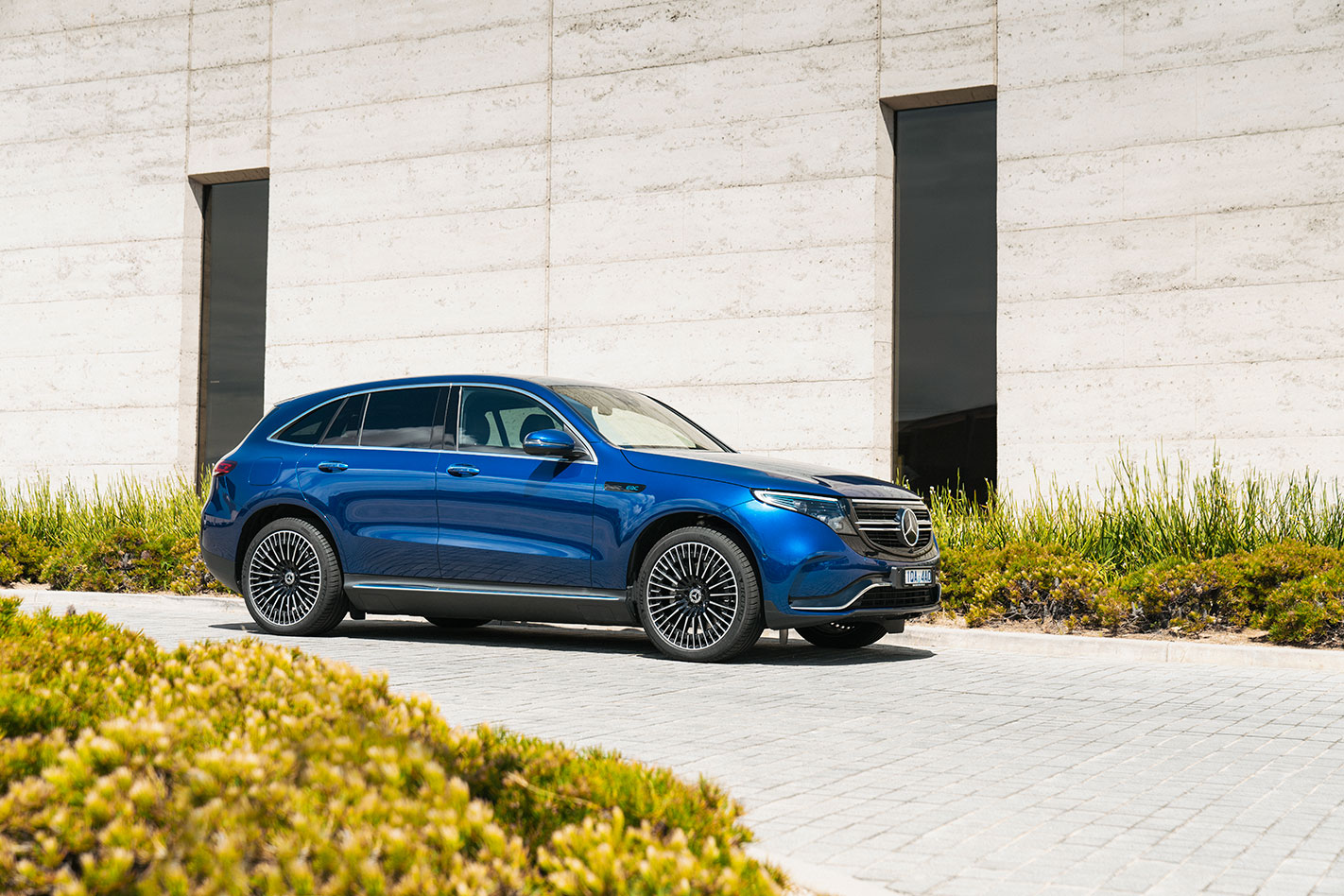
MERCEDES-BENZ EQC 400 REVIEW
Cautious? Or clever? They’re the two central themes that need to be probed when considering Mercedes’ first-ever mainstream EV.
The ‘cautious’ question is unavoidable, given the company’s decision to not build the EQC on a bespoke EV architecture, thus missing out on potential packaging advantages. Instead, this car is, in essence, a heavily revised GLC with dual electric motors and an 80kWh hour battery. So there’s no ‘frunk’, for example, and the second-row floor is still split by what was the transmission tunnel.
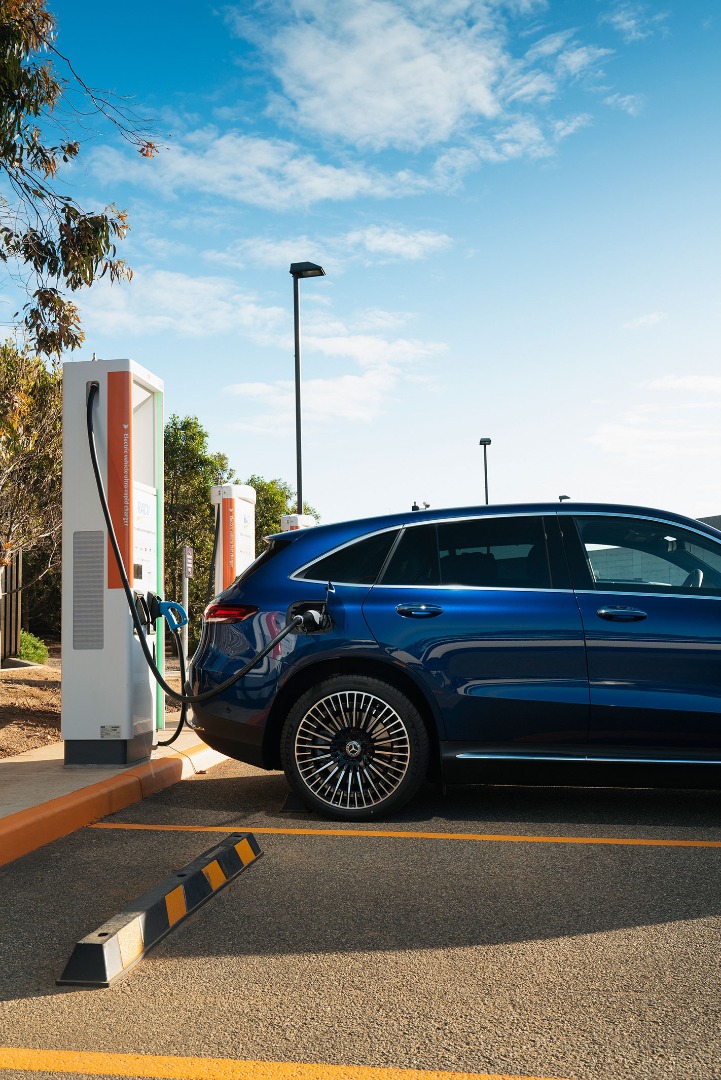
On the flip side, taking this path has allowed Mercedes to build the EQC on the GLC production line, ensuring greater production control, as well as create an EV so, well, ‘normal’, it has potential to attract customers for whom an electric SUV may have otherwise been a tech step too far.
And now we’ve driven it on Aussie roads, we can confirm what was evident from Inwood’s first drive in Norway (Wheels, July): it’s a brilliantly polished, hugely accomplished SUV, delivering a level of cabin quietness and refinement that the likes of Bentley and Rolls-Royce would envy.
Inwood said it best when he noted that he couldn’t recall “having driven a softer Mercedes this side of an S-Class”. It really is that cushy. The damping calibration is a master stroke (excuse the pun), as it perfectly suits the car’s character and the way customers will use it 99 percent of the time. As for the sense of premiumness, sometimes Euro-spec cars driven on European roads can lose a little of their sheen when they confront often battered, coarse-chip Aussie bitumen, but not here. Mercedes’ efforts at motor isolation and wheelarch soundproofing are every bit as impressive on our roads are they were on those of Norway. From the front seats, at least, the EQC glides in serene tranquillity, the tyre noise wonderfully muted, the gentle rustle of air over the car the only real sound in the cabin.
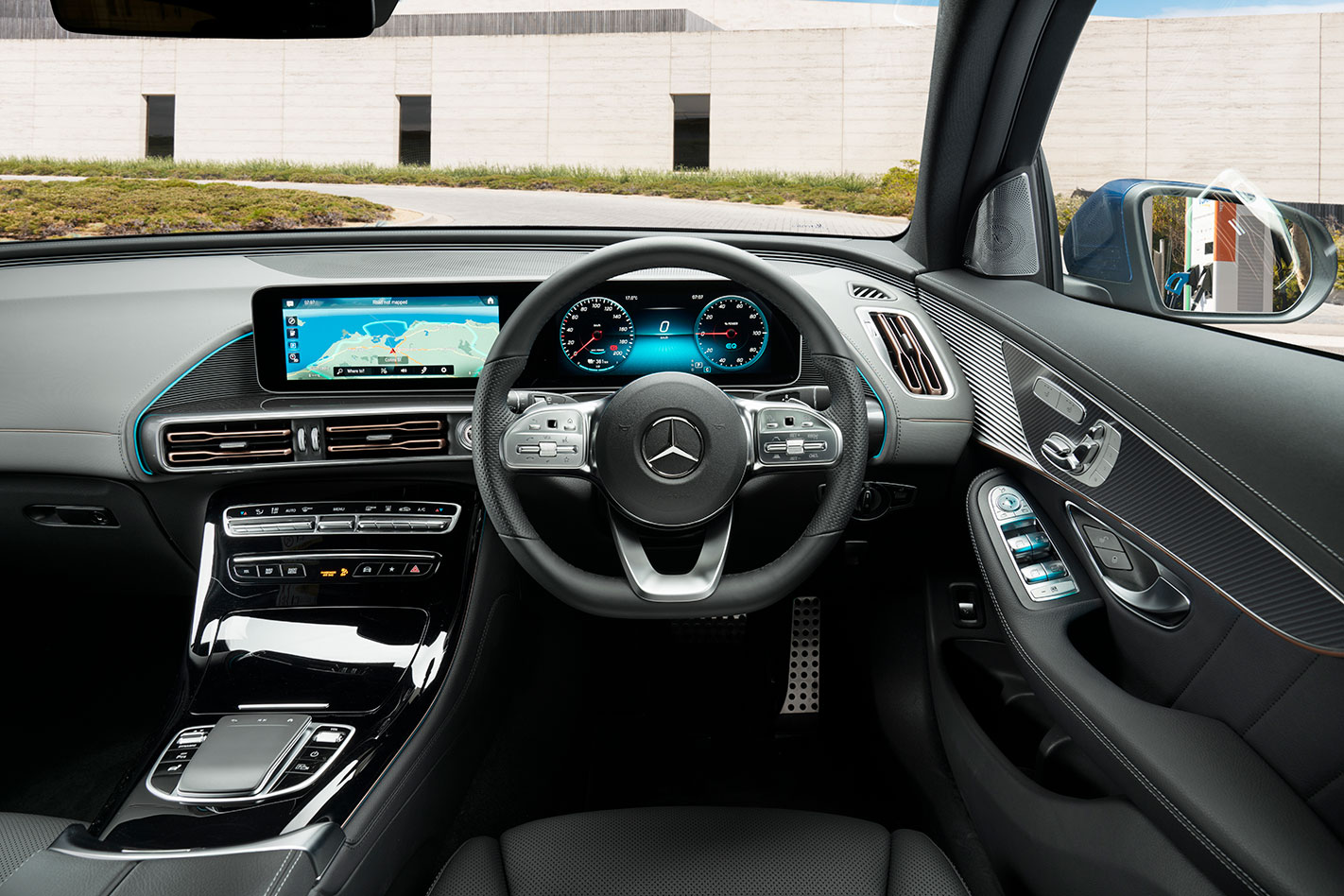
Of course, it’s quick enough to be satisfying to steer swiftly. The factory’s 0-100km/h claim is 5.1sec; we nailed it in just 4.7. It’s heavy, yes ‑ nearly 2.5 tonnes ‑ but all that instant torque mobilises it with real intensity.
The steering is also quick, at 2.2 turns lock-to-lock, and combined with the fact the mass is carried low, the fundamental dynamics are rock solid. Okay, it doesn’t really revel in being aggressively muscled around in tight terrain, but it is a pliant, planted tourer.
The EQC’s Aussie price of $137,900 sees it slotted between the $109,900 GLC 43 and $161,000 for the GLC 63, the two ICE models it broadly fits between in terms of performance. That buys a premium SUV with a rich level of standard spec. The Aussie 400 model is fitted with the AMG Line exterior and interior styling, 20-inch wheels, LED headlights, sunroof, full driving assistance package with active cruise, head-up display, 13-speaker Burmester audio system, wireless phone charging, and app-based control of some functions.
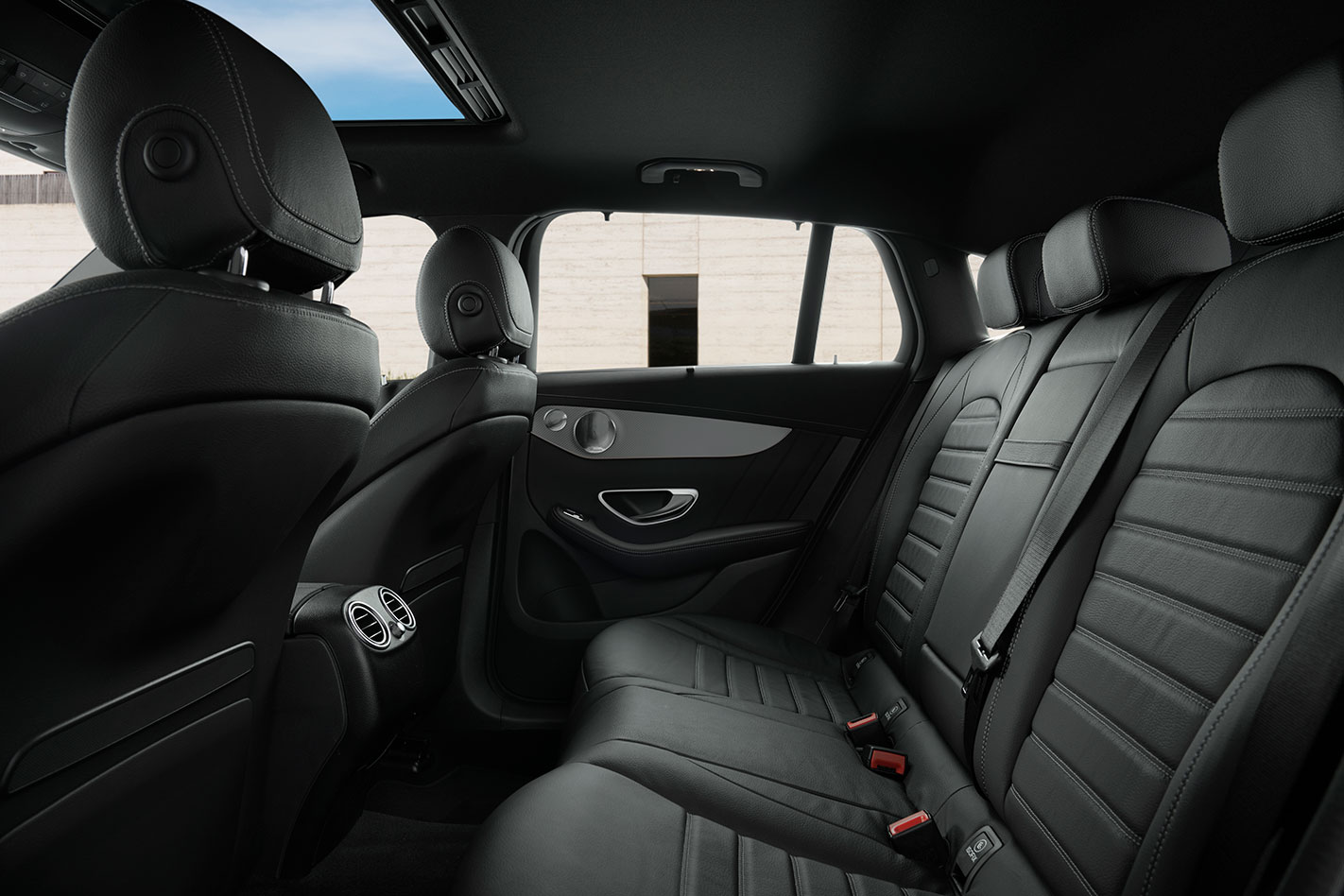
If you’re tempted by the options list, you’ll find most items bundled in an Edition 1 package (of which only 25 examples are offered), priced at $6900 or $8600, depending on paint choice. Key bits of the Edition 1 are 21-inch wheels, two-tone nappa leather, ventilation and heating for the front seats, three-zone climate control, and augmented reality for the navigation.
A five-year subscription to Chargefox is standard for Aussie buyers, giving unlimited free access to 22 fast-charger sites. Home charging is via a wallbox priced at around $2000 installed; figure on overnight charging delivering a real-world range of around 350km.
So to the original question. Given the EQC loses little from its GLC roots in terms of real-world practicality, the ‘cautious’ critique appears unfounded. Actually, this may just be the most complete and convincing Mercedes SUV since … forever?
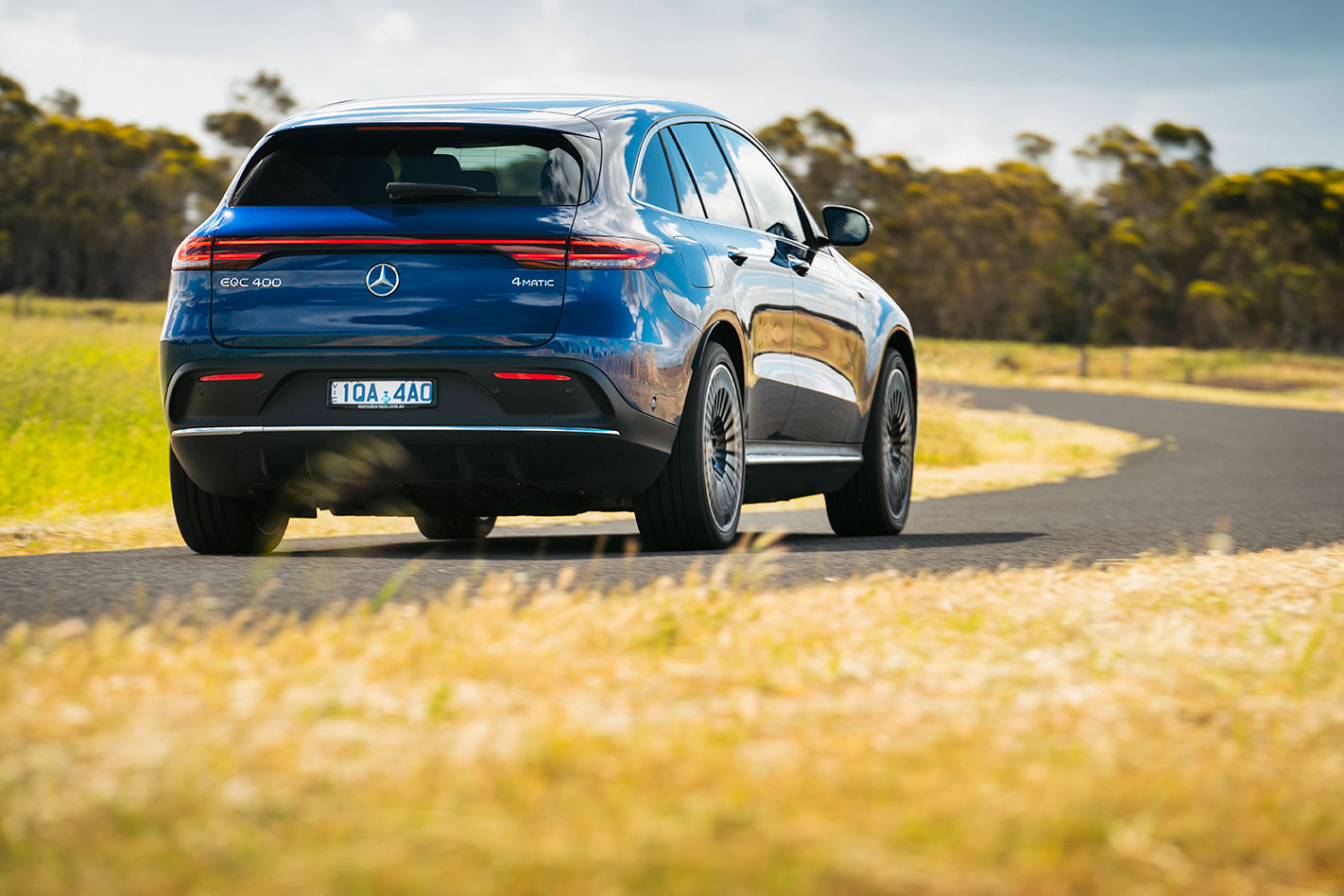
SPECS
- Model: Mercedes-Benz EQC 400
- Motors: 2 x asynchronous
- Battery: 80kW lithium-ion
- Max power: 300kW
- Max torque: 760N
- Transmission: Single-speed reduction gear
- Weight: 2480kg
- 0-100km/h: 4.7sec (tested)
- Economy: 19.7-20.8kWh/100km
- Price: $137,900
- On sale: Now
Things we like
- Instant acceleration
- Cabin quietness;
- Plush ride
- Free recharging
Not so much
- Less dynamic than Jaguar I-Pace
- Packaging not EV-optimised


